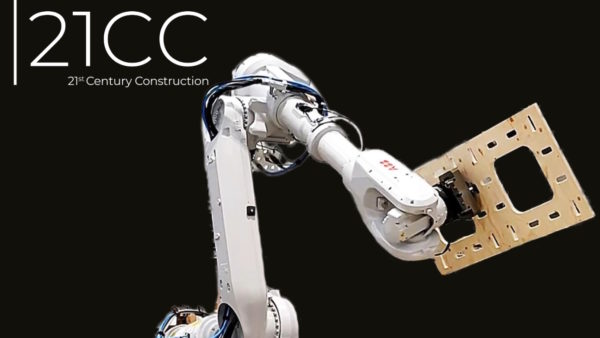
Instantly everything became remote, everything relied on data, and the digital transformation we feared might take up to five years became a rollercoaster commercial revolution within five months. Lee Brankley, UK Certification Authority for Reinforcing Steels
Lee Brankley reflects on the impacts of Covid as the rebar industry seeks to regain its customers’ trust in the wake of the Kobe Steel scandal.
Looking back just 12 months to a time when no one uttered the word ‘Covid’, there was a real sense of nervousness as the UK Certification Authority for Reinforcing Steels (CARES) board prepared to double down on its commitment to switch steel assessment and certification from paper to digital. It was expensive, involved significant training for staff and a difficult ‘sell in’ to an industry not known for welcoming change.
But we went for it. The CARES app was launched – offering instant smartphone visibility into the provenance of safety-critical reinforcing products – and clients were walked through the process and the opportunities presented to their businesses, whether manufacturers, consultants or processors.
The app is free to download and simple to use: CARES certification of individual batches of reinforcing product can be confirmed with a simple hand-held QR scan and, critically, the app offers the ability to flag a concern in relation to steel products where there is no lack of clarity. Unique bar markings identify product and enable users to engage interactively with CARES, accessing the authority’s secure database.
Naturally some weren’t convinced at the outset but two things changed all that. First, I’ve used the word ‘provenance’ already, but a better one may be ‘trust’ as the overarching lessons of fake data and the Hackitt Review started to kick in quickly pre-pandemic.
The Kobe Steel scandal, coming in the wake of the VW emissions scandal, proved beyond doubt that commercial pressure could lead even previously renowned enterprises to betray their clients.
At Kobe, hundreds of instances of fraudulent steel data were uncovered, causing deep unease across the aviation, automotive and wider manufacturing sectors, all of which had placed their faith in the reputation of Japan’s third-biggest steelmaker. Taken together, these and other less high-profile breaches confirmed our worst fears. If nobody had confidence in a product entering the supply chain, how on earth could the steel industry be trusted to deliver projects in future?
And then came the pandemic
And we all know the second issue: Covid’s pernicious impact followed the fake data scandals, hitting every sector and accelerating the need for certainty, particularly as no one – least of all CARES’ team of experienced international steel auditors – was free to travel to inspect product.
Instantly everything became remote, everything relied on data, and the digital transformation we feared might take up to five years became a rollercoaster commercial revolution within five months.
I firmly believe that even if a proven, safe vaccine were to suddenly become available, the digital construction ‘genie’ will never go back in the bottle, despite one of the other critical lessons of 2020 still largely being ignored. This is the importance of collaboration: a willingness to work effectively together to create quality outcomes.
The data sharing challenge
The recent Digital Construction Summit (DCS) shone a disturbing spotlight on our industry’s dreadful track record of sharing and transferring knowledge. Rather than collaboration, the lack of clear and simple communication is a constant root cause of chaos at the project sharp end.
A sneak preview of CIOB survey findings during a DCS safety seminar found that one of the biggest blockers to weaving the Golden Thread of Building Information is lack of clarity, or individual companies’ collective inability to accurately preserve and share information. Sadly, most of those quizzed felt that the only solution to this critical and embedded blocker is legislation.
That is certainly on the cards with the Building Safety Bill but as laws take shape there’s one final lesson that underpins all in my opinion and that’s culture. Again the CIOB’s survey points to the true extent of this as a blocker to progress. I await with interest their final results, but what’s already clear is that we have a serious, underlying cultural problem, based on preserving our own status regardless of the risk that might mean for others.
One of the overarching themes that emerged from the Kobe case two years ago was exactly this issue: the firm admitted in its final investigation report that it had “deep-seated issues” around corporate culture, leading staff to change results, or simply make up data about the quality of the products emerging from the corporation’s steel plants.
Is it time to ask whether we are finally prepared to learn for the sake of future generations, or simply press on… and look back on all of this as just a nasty bump in the road? I for one certainly hope not.
Lee Brankley is CEO of CARES.
Download the app:
Apple: https://apps.apple.com/gb/app/cares-cloud/id1474099842
Android: https://play.google.com/store/apps/details?id=com.app.carescloud&hl=en















